概述:近期在使用QingCloud的Kubesphere,极好的用户体验,私有化部署,无基础设施依赖,无 Kubernetes 依赖,支持跨物理机、虚拟机、云平台部署,可以纳管不同版本、不同厂商的 Kubernetes 集群。在k8s上层进行了封装实现了基于角色的权限控制,DevOPS流水线快速实现CI/CD,内置harbor/gitlab/jenkins/sonarqube等常用工具,基于基于 OpenPitrix 提供应用的全生命周期管理,包含开发、测试、发布、升级,下架等应用相关操作自己体验还是非常的棒。同样作为开源项目,难免存在一些bug,在自己的使用中遇到下排错思路,非常感谢qingcloud社区提供的技术协助,对k8s有兴趣的可以去体验下国产的平台,如丝般顺滑的体验,rancher的用户也可以来对不体验下。
一 清理退出状态的容器
在集群运行一段时间后,有些container由于异常状态退出Exited,需要去及时清理释放磁盘,可以将其设置成定时任务执行
docker rm `docker ps -a |grep Exited |awk '{print $1}'`二 清理异常或被驱逐的pod
- 清理kubesphere-devops-system的ns下清理
- 为方便清理指定ns清理evicted/crashloopbackoff的pod/清理exited的容器
- 清理全部ns中evicted/crashloopbackoff的pod
三 将docker数据迁移
在安装过程中未指定docker数据目录,系统盘50G,随着时间推移磁盘不够用,需要迁移docker数据,使用软连接方式:首选挂载新磁盘到/data目录
systemctl stop docker mkdir -p /data/docker/ rsync -avz /var/lib/docker/ /data/docker/ mv /var/lib/docker /data/docker_bak ln -s /data/docker /var/lib/ systemctl daemon-reload systemctl start docker四 kubesphere网络排错
- 问题描述:
在kubesphere的node节点或master节点,手动去启动容器,在容器里面无法连通公网,是我的配置哪里不对么,之前默认使用calico,现在改成fluannel也不行,在kubesphere中部署deployment中的pod的容器上可以出公网,在node或master单独手动启动的访问不了公网
查看手动启动的容器网络上走的docker0
root@fd1b8101475d:/# ip a 1: lo: <LOOPBACK,UP,LOWER_UP> mtu 65536 qdisc noqueue state UNKNOWN group default qlen 1 link/loopback 00:00:00:00:00:00 brd 00:00:00:00:00:00 inet 127.0.0.1/8 scope host lo valid_lft forever preferred_lft forever 2: tunl0@NONE: <NOARP> mtu 1480 qdisc noop state DOWN group default qlen 1 link/ipip 0.0.0.0 brd 0.0.0.0 105: eth0@if106: <BROADCAST,MULTICAST,UP,LOWER_UP> mtu 1500 qdisc noqueue state UP group default link/ether 02:42:ac:11:00:02 brd ff:ff:ff:ff:ff:ff link-netnsid 0 inet 172.17.0.2/16 brd 172.17.255.255 scope global eth0 valid_lft forever preferred_lft forever在pods中的容器网络用的是kube-ipvs0
1: lo: <LOOPBACK,UP,LOWER_UP> mtu 65536 qdisc noqueue qlen 1 link/loopback 00:00:00:00:00:00 brd 00:00:00:00:00:00 inet 127.0.0.1/8 scope host lo valid_lft forever preferred_lft forever 2: tunl0@NONE: <NOARP> mtu 1480 qdisc noop qlen 1 link/ipip 0.0.0.0 brd 0.0.0.0 4: eth0@if18: <BROADCAST,MULTICAST,UP,LOWER_UP,M-DOWN> mtu 1500 qdisc noqueue link/ether c2:27:44:13:df:5d brd ff:ff:ff:ff:ff:ff inet 10.233.97.175/32 scope global eth0 valid_lft forever preferred_lft forever- 解决方案:
查看docker启动配置

修改文件/etc/systemd/system/docker.service.d/docker-options.conf中去掉参数:--iptables=false 这个参数等于false时会不写iptables
[Service] Environment="DOCKER_OPTS= --registry-mirror=https://registry.docker-cn.com --data-root=/var/lib/docker --log-opt max-size=10m --log-opt max-file=3 --insecure-registry=harbor.devops.kubesphere.local:30280"五 kubesphere 应用路由异常
在kubesphere中应用路由ingress使用的是nginx,在web界面配置会导致两个host使用同一个ca证书,可以通过注释文件配置
⚠️注意:ingress控制deployment在:
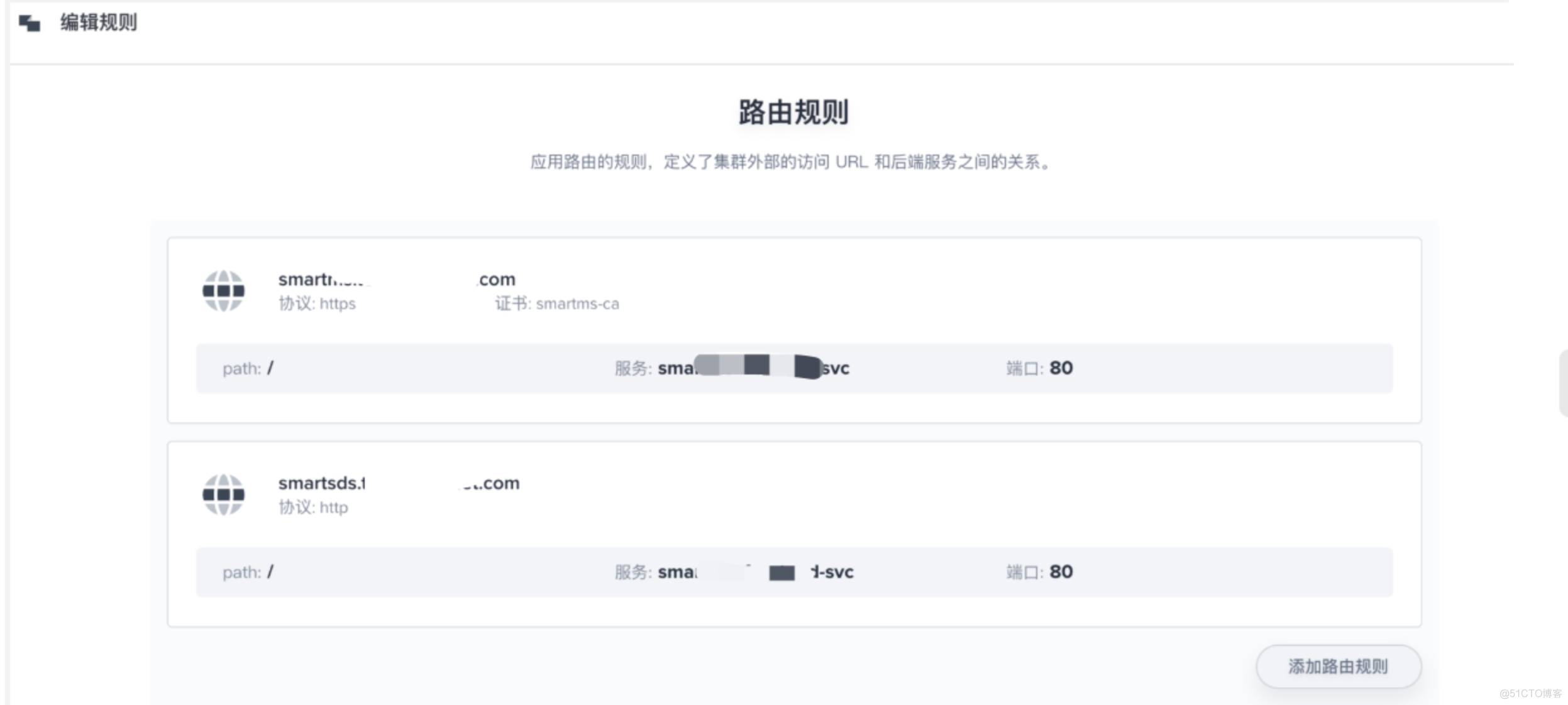
六 kubesphere更新jenkins的agent
用户在自己的使用场景当中,可能会使用不同的语言版本活不同的工具版本。这篇文档主要介绍如何替换内置的 agent。
默认base-build镜像中没有sonar-scanner工具,Kubesphere Jenkins 的每一个 agent 都是一个Pod,如果要替换内置的agent,就需要替换 agent 的相应镜像。
构建最新 kubesphere/builder-base:advanced-1.0.0 版本的 agent 镜像
更新为指定的自定义镜像:ccr.ccs.tencentyun.com/testns/base:v1
参考链接:https://kubesphere.io/docs/advanced-v2.0/zh-CN/devops/devops-admin-faq/#%E5%8D%87%E7%BA%A7-jenkins-agent-%E7%9A%84%E5%8C%85%E7%89%88%E6%9C%AC
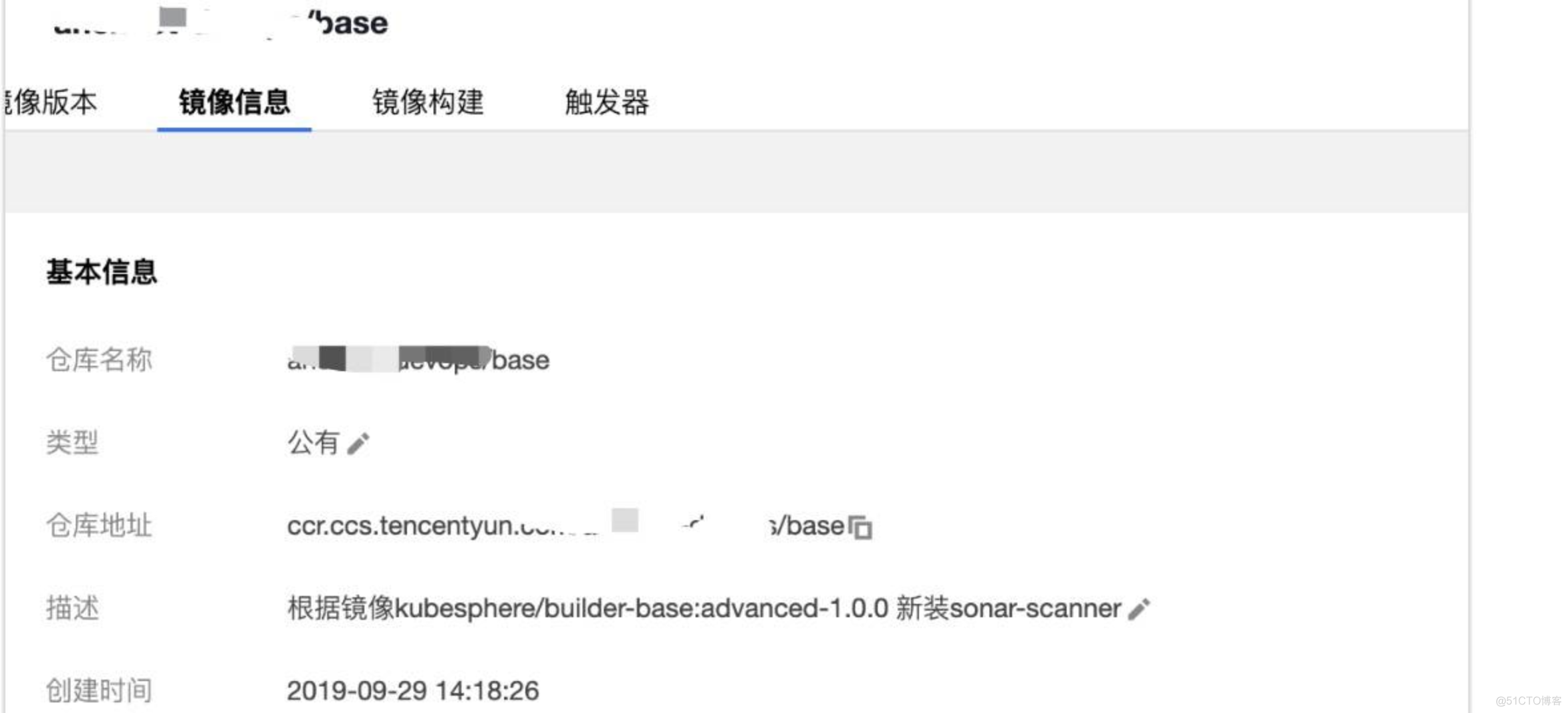
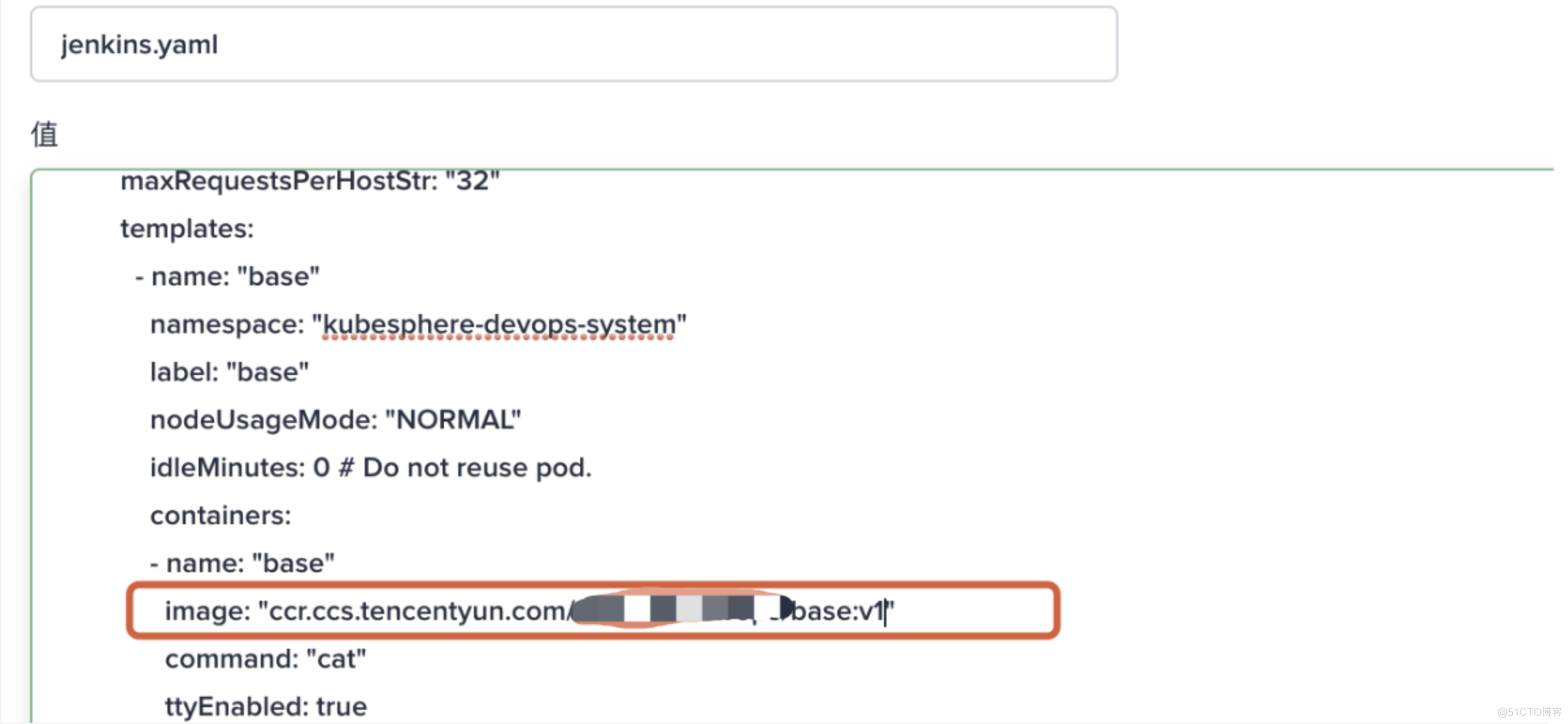
在 KubeSphere 修改 jenkins-casc-config 以后,您需要在 Jenkins Dashboard 系统管理下的 configuration-as-code 页面重新加载您更新过的系统配置。
参考:
https://kubesphere.io/docs/advanced-v2.0/zh-CN/devops/jenkins-setting/#%E7%99%BB%E9%99%86-jenkins-%E9%87%8D%E6%96%B0%E5%8A%A0%E8%BD%BD
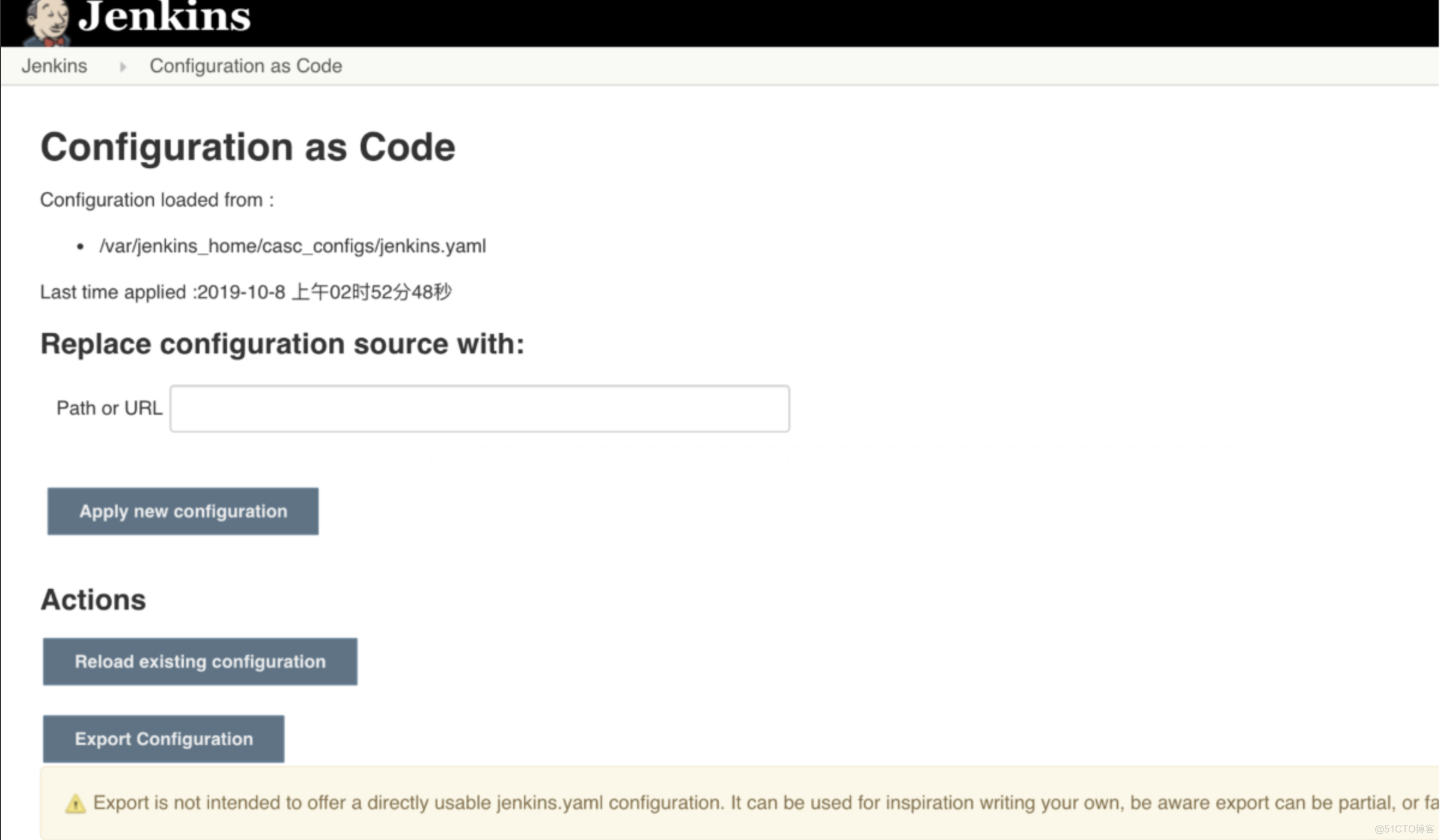
jenkins中更新base镜像
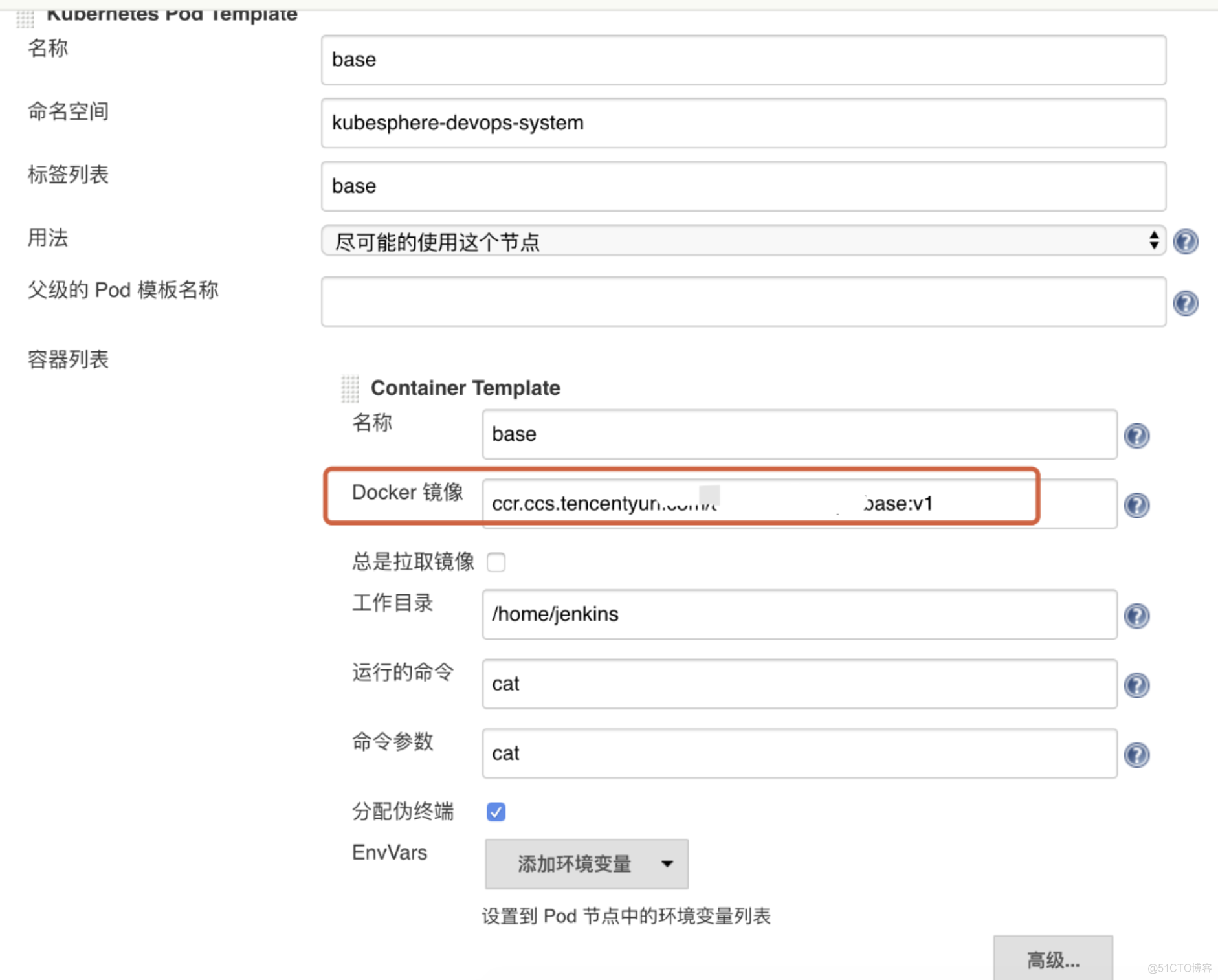
⚠️先修改kubesphere中jenkins的配置,jenkins-casc-config
七 Devops中Mail发送
参考:https://www.cloudbees.com/blog/mail-step-jenkins-workflow
内置变量:
变量名 解释 BUILD_NUMBER The current build number, such as "153" BUILD_ID The current build ID, identical to BUILD_NUMBER for builds created in 1.597+, but a YYYY-MM-DD_hh-mm-ss timestamp for older builds BUILD_DISPLAY_NAME The display name of the current build, which is something like "#153" by default. JOB_NAME Name of the project of this build, such as "foo" or "foo/bar". (To strip off folder paths from a Bourne shell script, try: ${JOB_NAME##*/}) BUILD_TAG String of "jenkins-${JOB_NAME}-${BUILD_NUMBER}". Convenient to put into a resource file, a jar file, etc for easier identification. EXECUTOR_NUMBER The unique number that identifies the current executor (among executors of the same machine) that’s carrying out this build. This is the number you see in the "build executor status", except that the number starts from 0, not 1. NODE_NAME Name of the slave if the build is on a slave, or "master" if run on master NODE_LABELS Whitespace-separated list of labels that the node is assigned. WORKSPACE The absolute path of the directory assigned to the build as a workspace. JENKINS_HOME The absolute path of the directory assigned on the master node for Jenkins to store data. JENKINS_URL Full URL of Jenkins, like http://server:port/jenkins/ (note: only available if Jenkins URL set in system configuration) BUILD_URL Full URL of this build, like http://server:port/jenkins/job/foo/15/ (Jenkins URL must be set) SVN_REVISION Subversion revision number that's currently checked out to the workspace, such as "12345" SVN_URL Subversion URL that's currently checked out to the workspace. JOB_URL Full URL of this job, like http://server:port/jenkins/job/foo/ (Jenkins URL must be set)最终自己写了适应自己业务的模版,可以直接使用
mail to: 'xuel@net.com', charset:'UTF-8', // or GBK/GB18030 mimeType:'text/plain', // or text/html subject: "Kubesphere ${env.JOB_NAME} [${env.BUILD_NUMBER}] 发布正常Running Pipeline: ${currentBuild.fullDisplayName}", body: """ ---------Anchnet Devops Kubesphere Pipeline job-------------------- 项目名称 : ${env.JOB_NAME} 构建次数 : ${env.BUILD_NUMBER} 扫描信息 : 地址:${SONAR_HOST} 镜像地址 : ${REGISTRY}/${QHUB_NAMESPACE}/${APP_NAME}:${IMAGE_TAG} 构建详情:SUCCESSFUL: Job ${env.JOB_NAME} [${env.BUILD_NUMBER}] 构建状态 : ${env.JOB_NAME} jenkins 发布运行正常 构建URL : ${env.BUILD_URL}"""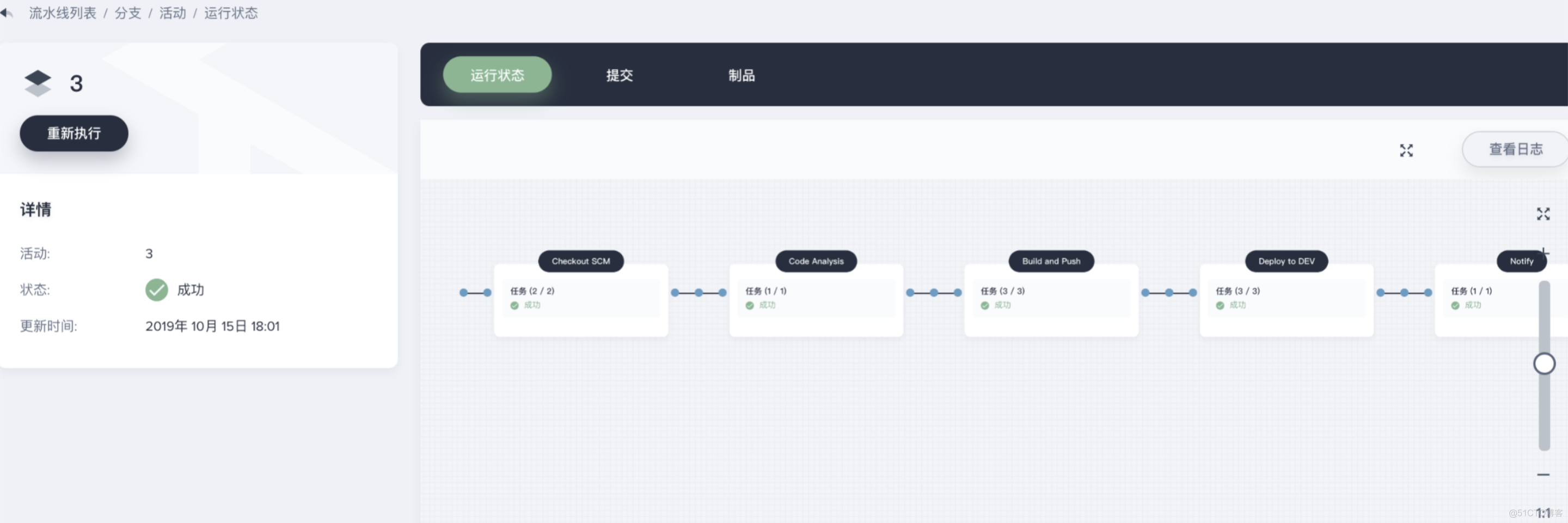

自己整理了k8s学习笔记,有兴起的可以一快学习交流:https://github.com/redhatxl/awesome-kubernetes-notes支持国产容器管理平台KubeSphere,为社区尽自己的一份绵薄之力。
